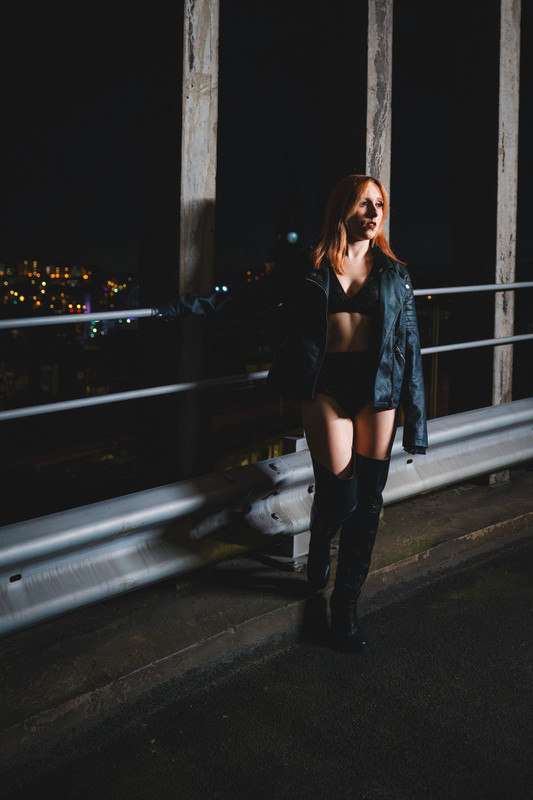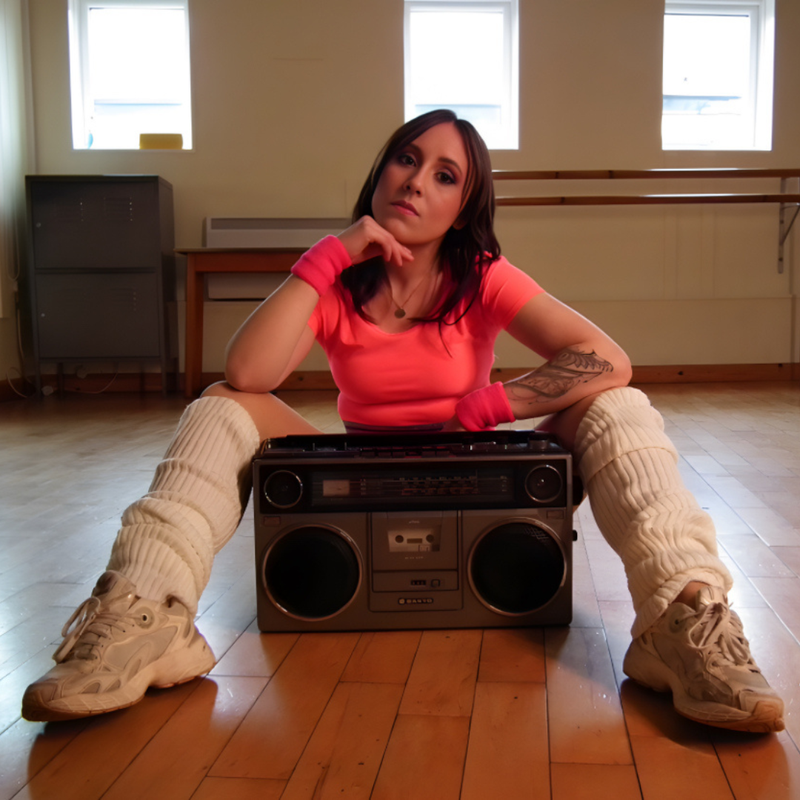Artist Interview: Mari Clare
Meet Mari Clare, a rising pop artist whose music is a vibrant mix of dream pop and fearless honesty. Hailing from Germany and now based in the UK, Mari Clare crafts "anthems for the anxious heart" that speak directly to the misunderstood, the dramatic, and anyone who refuses to tone themselves down. She's here to talk about her creative process, musical influences, and the powerful message behind her art.
Tori: You describe your music as "anthems for the anxious heart" that blend "dream pop meets fearless honesty." Can you elaborate on what this means to you and how you translate those concepts into your songwriting?
Mari: My music lives in that space between emotional chaos and catharsis. "Anthems for the anxious heart" means I’m writing for people who feel everything a little too much. I turn those overwhelming emotions into something empowering. Music gives me the sonic space to float, escape, and explore, while fearless honesty keeps me grounded in truth. It’s not just about pretty sounds; it’s about telling the emotional truth, even when it’s messy.
Tori: You create music for "the misunderstood, the dramatic, the emotional—and the ones who refuse to tone it down." How do you tap into those feelings to write music that resonates with people who have been told they're "too much"?
Mari: I’ve been that person, especially when I was younger, told to be quieter, less intense, and more digestible. So I write from that raw place where those feelings live. I let myself feel everything fully and give those emotions a voice without shame or filter. That kind of authenticity creates a mirror for others who’ve felt the same. If my music helps someone feel seen in their intensity, I’ve done something right.
Tori: You draw influence from theatrical icons like Chappell Roan, Lady Gaga, and Coldplay. How do these artists, in particular, inspire your sound and performance style?
Mari: They’ve taught me that pop can be huge—not just sonically, but emotionally and visually. Chappell Roan’s unapologetic self-expression, Gaga’s fearless reinvention, and Coldplay’s ability to turn emotional vulnerability into stadium anthems... they all remind me that music is both performance and intimacy. I bring that same theatricality into my work, whether it’s through visuals, lyrics, or live energy.
Tori: You're originally from Germany and are now based in the UK. How has moving and being in a new country influenced your music and your personal journey as an artist?
Mari: I moved to the UK about eight years ago, and it was tough at first—making new connections, getting settled in a new culture, and learning the language. I feel that people here in the UK are more open to new things and new music styles, so it has helped me to try and be "myself" more and do what I love to do, which is music.
Tori: You write from a "deeply personal place." What is your creative process like, and how do you go about turning "mental noise into melody, and chaos into clarity"?
Mari: My process usually starts with a feeling—often anxiety, longing, or some emotional storm I can’t quite name. I sit in my room or in the studio with my brother, and we just feel. Sometimes it’s a stream-of-consciousness voice memo; other times, it’s a lyric that keeps repeating in my head. I sculpt it from there. Songwriting is how I make sense of the chaos; it’s my therapy, my translation tool.
Tori: With five singles and four music videos already released, you've clearly been busy. What do you hope to accomplish with your music videos, and how do they add to the storytelling of your songs?
Mari: The visuals are an extension of the emotion. I want each video to capture a feeling—not just the story of the song, but the texture of it. Whether it’s defiance, heartbreak, liberation, or inner conflict, I want people to feel it through color, movement, and atmosphere. Videos are my chance to turn my internal world into something visual and unique.
Tori: Your music videos have a variety of themes, from dance performances for "Lotus" and "I Don't Wanna Go" to an '80s/'90s style for "In My Head." How do you decide on the visual direction for each track?
Mari: To be honest, when I hear a song, I directly get visuals in my head. That’s how I work. It’s funny because sometimes I have all these ideas and know how it should look, but I can’t fully describe it, and that’s where Caviar Studio comes in. I explain what I feel and want, and they help me build the fantasy I have for each music video.
Tori: You have a new single coming out at the end of August that is described as a "fearless anthem." What can you tell us about this new track and the message behind it?
Mari: This track is about finally refusing to shrink. It’s bold, loud, and unapologetic. I wrote it after a period of intense self-doubt, and it became a kind of personal battle cry. It’s for anyone who’s tired of being polite about their own pain or waiting for permission to be themselves. It’s me stepping fully into my power.
Tori: "Lotus," "I Don't Wanna Go," "Nothing Like You," and "In My Head" were all released in 2024 and 2025. Is there an overarching theme or story that connects these singles?
Mari: Yes—each one is a chapter in a journey toward self-acceptance. "Lotus" is about grief, "I Don’t Wanna Go" deals with the fear of loss, "Nothing Like You" is about not forgetting that there is nothing like you in this world, and "In My Head" explores the surreal side of overthinking. Together, they map out a process of breaking down and rebuilding—a kind of emotional metamorphosis.
Tori: You've performed at open mics across the UK and are looking for more gigs. How has performing live influenced your music, and what do you enjoy most about connecting with an audience?
Mari: I've loved performing since I was younger—I danced on stage and also did camps with friends where I sang on stage. It helps me build more confidence on and off stage. I hope to do it more very soon at a "real" gig. I love every audience; they seem very supportive and are always cheering me on. I absolutely love being on stage.
Tori: The phrase "dancing through the pain" is used to describe your music. Can you talk about the balance between the danceable, empowering side of your sound and the emotional vulnerability in your lyrics?
Mari: That contrast is the core of my music. I love the idea that you can be falling apart inside but still dancing—still choosing joy or release. The beat gives you a place to move through the feeling instead of being crushed by it. My lyrics might make you cry, but the music lets you survive.
Tori: Your music is a "collision of vulnerability and defiance." How do you find the courage to be so vulnerable and honest in your music, and what message do you hope that sends to your listeners?
Mari: I think vulnerability is defiance in a world that rewards perfection and silence. It’s taken time, but I’ve learned that the more honest I am, the more connection I create. My hope is that listeners feel empowered to show up as their full selves—flawed, emotional, and complicated—and know that’s enough.
Tori: Looking at your list of singles, "Carry Me Go" is labeled as "Afrobeat." Can you tell us more about this song and how it fits within your overall sound?
Mari: "Carry Me Go" was an unexpected song. The person who produced and wrote it just reached out to me and said, "Hey, I'd like you in my song." And as I have a lot of people from Ghana following me, and also because my late husband was African and from Ghana, it felt right. I absolutely love this song! It’s very different but still me.
Tori: Your music is described as having a message. What do you consider the most important message you want to share with the world through your songs?
Mari: That your feelings are valid. That being "too much" or "too quiet" is actually your power. That softness and strength aren’t opposites. I want people to know they can be vulnerable and still take up space—that their truth is worth talking about.
Tori: When you aren't hard at work, how do you take time to unwind?
Mari: I love to drive and listen to music or take a run and just free up my mind. I do have some days where I don’t want to do anything, and that’s okay too. Sometimes you just need to be in bed or at home and do nothing.
Tori: What's one of the biggest lessons you've learned so far in your journey as a pop artist?
Mari: That everything is possible—and that you should never stop believing in yourself. The right people will come and support you in every way. Just be you.
Tori: You make music for anyone who has been told they're "too much" and have turned it into their "superpower." What does "superpower" mean to you in this context, and how do you embody that in your work?
Mari: It means reclaiming what others tried to shame you for. If you feel things deeply, that’s not a flaw—it’s your fuel. I channel that intensity into music that’s bold, dramatic, honest, and full of heart. Being "too much" just means you have more to give.
Tori: What are your goals for the rest of 2025 and beyond, especially as you continue to look for more gigs and new opportunities?
Mari: My goals are to release more songs, do more live gigs, and build a small fan base and connect with them! And obviously, to build myself up to be able to live my dream one day!



Comments
Post a Comment